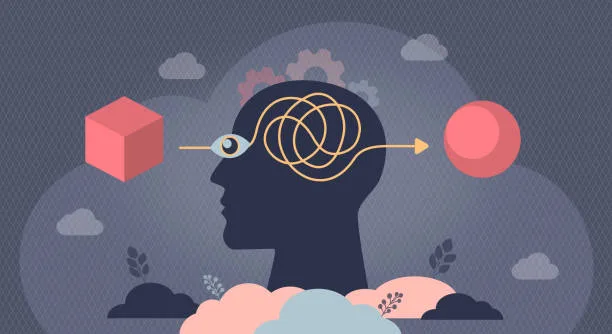Unrequited love is one of the deepest, most complex emotional experiences a human being can endure. It is love that flows in one direction only, like a river that never finds its ocean. It is the yearning of the heart for someone who cannot or does not return the same feeling. This form of love carries within it both beauty and pain—the beauty of devotion and sincerity, and the pain of absence and rejection.
Unlike mutual love, where affection is mirrored and returned, unrequited love is silent, solitary, and unbalanced. It may exist in secret, with the beloved never knowing the depth of feeling directed toward them, or it may linger painfully even after the beloved has expressed disinterest. In both cases, the result is the same: a heart that continues to beat for someone who does not beat for it in return.
Throughout history, poets, philosophers, and scientists have tried to capture the essence of this peculiar emotion. It has inspired some of the greatest works of literature, from Dante’s longing for Beatrice to Shakespeare’s sonnets of unattainable affection. Yet unrequited love is not only the subject of art—it is a psychological, biological, and social phenomenon that reveals much about human nature itself.
The Psychology of Unrequited Love
At its core, unrequited love is not simply about rejection. It is about the deep-seated needs, desires, and vulnerabilities that live within us. Psychologists suggest that the experience often reflects patterns of attachment formed in early childhood. Those who developed anxious attachment styles, for example, may be more prone to fall into one-sided love, seeking approval and affection from emotionally unavailable partners.
The brain itself is deeply implicated in this experience. Love activates the brain’s reward system, flooding it with dopamine and oxytocin—the very chemicals that create feelings of pleasure and attachment. But in unrequited love, this system becomes unbalanced. The person in love continues to experience longing and reward anticipation, even though the desired connection never materializes. It is like pulling a lever of a slot machine, expecting a win, yet never receiving one.
Neuroscientists have found that rejection and unfulfilled love activate the same brain regions associated with physical pain. In other words, the ache of unrequited love is not just metaphorical—it is real, encoded in our neural pathways. That is why people often describe heartbreak as if it were a physical wound.
The Role of Fantasy and Idealization
One of the defining features of unrequited love is the role of imagination. When love is not reciprocated, the mind often compensates by creating elaborate fantasies. The beloved becomes idealized, elevated to perfection in the mind of the lover. Every gesture, every word, every glance may be interpreted as a hidden sign of affection.
This idealization can create a cycle that reinforces the love. The lover convinces themselves that, if only circumstances were different, the love would be returned. Yet this idealization often blinds the individual to reality: the beloved may not even possess the qualities attributed to them. The pain of unrequited love, then, is often a struggle not only with external rejection but with the internal collapse of fantasy.
Psychologists argue that fantasy serves a protective function. It allows the individual to sustain hope, which feels better than facing the harshness of rejection. But over time, this coping mechanism can trap the person in a cycle of longing, preventing them from moving forward.
Cultural and Historical Dimensions of Unrequited Love
Unrequited love is not merely a personal emotion—it is also shaped by culture and history. In medieval Europe, the tradition of courtly love celebrated the longing of knights for noblewomen who were unattainable. These women were often married, socially distant, or otherwise forbidden, making the love deliberately impossible. The suffering itself was seen as noble, even elevating.
In literature and music, unrequited love has been romanticized as a source of inspiration. Countless poems, songs, and novels celebrate the figure of the devoted lover who suffers silently. The idea that true love must involve pain has seeped into cultural consciousness, shaping how generations have understood relationships.
Yet not all cultures romanticize one-sided love. In some traditions, unreciprocated feelings are seen less as noble suffering and more as a sign of imbalance or misfortune. The way we interpret and cope with unrequited love, then, is influenced not only by psychology but by the narratives passed down through culture.
The Biology of Heartbreak
From a biological perspective, unrequited love is tied to the brain’s reward and stress systems. When love is reciprocated, oxytocin and dopamine reinforce the bond between individuals, making them feel secure and fulfilled. But when love is one-sided, cortisol—the stress hormone—rises. This creates feelings of anxiety, restlessness, and obsession.
Studies using brain imaging have shown that people experiencing unrequited love exhibit heightened activity in regions associated with obsession and craving. The same areas are active in individuals struggling with addiction. This suggests that unrequited love can function like an addiction of the mind: the beloved becomes the substance, and the longing becomes the withdrawal.
This explains why it can feel almost impossible to “just move on.” The brain is wired to keep seeking the desired reward, even when logic and reality say it is unattainable. The result is emotional turbulence—moments of elation at the thought of possibility, followed by despair at the realization of reality.
The Pain of Silence and Rejection
Perhaps the most searing aspect of unrequited love is silence—the absence of reciprocity. Love, in its fullest form, thrives on dialogue, on mutual acknowledgment. But in unrequited love, one voice speaks into the void, waiting for an answer that never comes. This silence becomes a wound, deepening the sense of loneliness.
Rejection, when it does come, often feels like a blow to identity itself. Psychologists explain that being rejected does not only hurt because love is denied, but because it shakes the sense of self-worth. To be unloved by someone we love feels like a judgment: “I am not enough.” This interpretation can spiral into feelings of shame, inadequacy, and depression.
And yet, rejection also carries a strange paradox. For some, it intensifies the feeling of love rather than diminishes it. The very act of denial can fuel desire, as if the forbidden becomes even more alluring. This paradox reveals the complexity of human psychology, where loss can sometimes inflame longing rather than extinguish it.
Unrequited Love and Growth
Though it may be painful, unrequited love is not meaningless. Many who endure it emerge with deeper self-understanding and resilience. The experience forces the individual to confront their vulnerabilities, their capacity for hope, and their ability to let go.
Psychologists emphasize that growth often comes from suffering. The pain of unrequited love teaches us about the limits of control, reminding us that love cannot be forced or demanded. It teaches empathy, for in feeling rejection, one becomes more sensitive to the rejections others may feel. It also teaches the art of moving on, of finding meaning beyond longing.
Artists, writers, and musicians have often turned their pain into creation, transforming personal heartbreak into works that resonate universally. In this way, unrequited love contributes to the shared human experience, weaving individual suffering into collective expression.
Healing from Unrequited Love
Recovery from unrequited love is rarely quick. It involves a process of mourning, for one is not only losing a person but also the imagined future that person represented. Psychologists describe the process as similar to grieving: denial, anger, bargaining, sadness, and finally acceptance.
Healing begins with acknowledgment—accepting the reality that the love will not be returned. From there, the individual can redirect their emotional energy, focusing on self-growth, friendships, and new opportunities. Support from loved ones plays a crucial role, as does time.
Neuroscience offers hope: just as the brain forms attachments, it can also rewire itself to detach. With patience, the intense craving diminishes, and the heart becomes open again. What once felt like an unbearable wound becomes a scar—a reminder, but no longer a prison.
Unrequited Love in the Modern World
In today’s digital age, unrequited love takes new forms. Social media can intensify the experience, making it harder to move on. The beloved is always visible—through posts, photos, and updates—keeping the longing alive. In earlier times, distance might have allowed healing; today, digital proximity can prolong the ache.
At the same time, the modern world offers new resources for healing. Support communities, therapy, and awareness about mental health provide pathways for those caught in the grip of unrequited love. The growing recognition that such love is not trivial but deeply impactful has opened doors for compassion and understanding.
The Mystery That Remains
Unrequited love, in the end, remains one of life’s great mysteries. Why do we sometimes fall for those who cannot love us back? Why does the heart cling to hope against all evidence? Science can map the neural pathways, psychology can explain the patterns, and culture can tell the stories—but none can fully capture the raw ache of a heart that loves without return.
Perhaps this is why unrequited love continues to fascinate and haunt us. It is a reminder that love is not rational, not controllable, not always fair. It is both our greatest gift and our deepest vulnerability. To love is to risk, and sometimes that risk leads to heartbreak. Yet even in heartbreak, there is meaning.
Conclusion: The Silent Teacher
Unrequited love is a silent teacher. It teaches us about desire, about the limits of control, about the resilience of the human spirit. It reveals our capacity for devotion, even when devotion brings no reward. It exposes the fragility of the heart, but also its strength to endure.
Though painful, unrequited love connects us to the shared human story. It is part of what it means to be alive, to feel deeply, to long for connection. And though it may not end in the fulfillment we dream of, it leaves behind something precious: the knowledge that we are capable of love, that we are willing to risk vulnerability, and that, despite silence, the heart has spoken its truth.
In the end, unrequited love is not just about loss—it is about the courage to love, even when love is not returned. It is a testament to the depth of human emotion, a reminder that even in suffering, there is beauty. For in loving without return, we glimpse the purest form of love: love that asks for nothing, yet still burns brightly within us.






